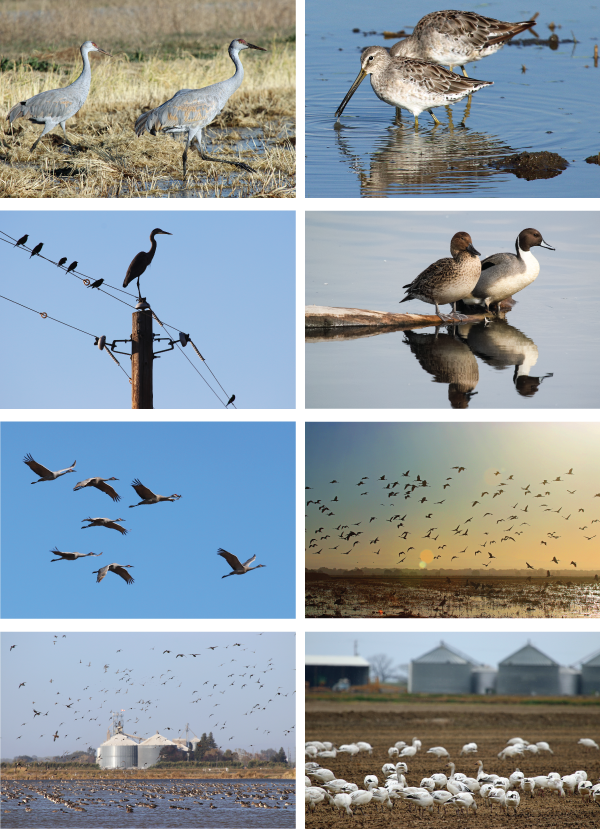The Pacific Flyway is one of four major North American migration routes for birds, especially waterfowl, and extends from Alaska and Canada, through California, to Mexico and South America. The Sacramento Valley plays a significant role within the Flyway, providing crucial habitat for these traveling birds. This unique region is not only a haven for waterfowl but also plays an essential role in Northern California’s integrated water system.
The Sacramento Valley stands as the most important wintering area for waterfowl along the Pacific Flyway. Migrating birds depend on this region to rest and feed during their annual journeys. In addition to the various species of waterfowl, the Valley also supports raptors, shorebirds, and numerous other species that rely on this habitat year-round.
Every winter, the Sacramento Valley welcomes over 1.5 million ducks and 750,000 geese to its seasonal marshes. These birds migrate from as far away as Alaska, Canada, and Siberia, making the Valley one of the most prominent wintering sites for waterfowl in the world. The habitat supports approximately 44% of wintering waterfowl using the Pacific Flyway.

(Row 1: Sandhill Cranes, Dowitcher; Row 2: Heron on pole, Northern Pintail; Row 3: Flying Sandhills, Ibis in Flight, Row 4: Ducks in Sutter County, Colusa Geese)
The Role of Agriculture and Water Districts in Conservation
The limited wetlands in the area make small-grain production fields, especially rice fields, critical to the survival of the large numbers of waterfowl wintering in California. These agricultural landscapes provide essential resources for birds and highlight the vital connection between farming and conservation. Also, many water districts and companies in the region not only provide water for agricultural landscapes and privately managed wetlands but also support federal wildlife refuges and state wildlife management areas. This collaborative effort ensures that both agriculture and wildlife thrive in the Sacramento Valley.




